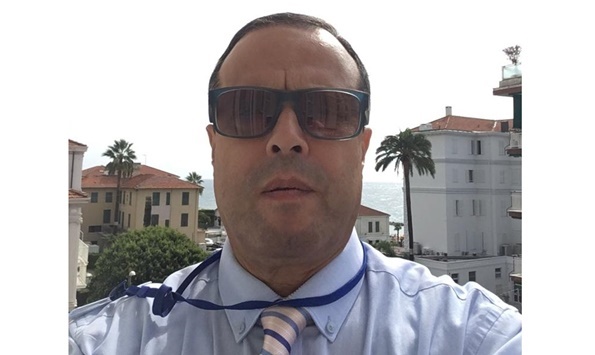Qatar Press Centre (QPC) Monday hosted a seminar in co-operation with Qatar Media Corporation (QMC), in the presence of the latter's CEO HE Sheikh Abdul Aziz bin Thani al-Thani, on 'Qatar World Cup 2022 the Idea, Legacy and Sustainability', at the Drama Theatre in Katara - Cultural Village.
In his welcome address, QPC chairman HE Saad bin Mohamad al-Rumaihi reviewed the achievements and the legacy of the hosting of World Cup since Qatar winning the bid and the establishment of the Supreme Committee for Delivery and Legacy (SC) which did a tremendous job at the highest international standards, with the support of Qatari officials who managed all the preparation phases.
"The unprecedented success of the hosting of the World Cup was not only a success for Qatar, but for all Arab countries. This success was mentioned by international media referring indirectly to voters in a BBC Sport poll in which as many as 78% selected FIFA World Cup Qatar 2022 as the best of this century."
HE al-Rumaihi concluded by praising the performance of young Qatari officials who represent part of the legacy with competencies acquired through their experience of hosting the mega event in addition to the sustainable infrastructure which is going to live long.
Broadcaster Khaled Jassim (Al Kass TV) was the moderator. The panellists were Jassim Abdulaziz al-Jassim, chief operating officer, FIFA World Cup 2022, (SC); Major Hamad al-Ali on behalf of the tournament security force; engineer Bader al-Meer, chief operating officer, Hamad International Airport (HIA); Najat al-Jaber, head of Land Transport Regulations and Policies, Ministry of Transport, and engineer Youssef al-Emadi, director of Projects Affairs, Ashghal.
Al-Jassim said that the SC worked on the legacy based on Qatar National Vision 2030, in particular the infrastructure, the stadiums, the parks and their use after the World Cup with a particular emphasis on the accumulated expertise of all the Qatari cadres who worked very hard to achieve sustainable international standards.
Major Hamad al-Ali said the tournament security force has acquired international experience through co-operation projects with friendly countries and active participation in South Africa and Russia World Cups, which led to devising a specific security concept in line with the procedures in Qatar. He also stressed the legacy of the expertise acquired by the staff which can be tapped for forthcoming major events that will be hosted by Qatar and the rapid and readiness of the deployment of this force.
Engineer al-Meer said that the preparations began eight or nine years before the tournament through intensive meetings, workshops and tests of operations. The expansion of HIA and the use of Doha International Airport helped receive 48,000 passengers in Doha daily during the tournament. This capacity building is a legacy that is going to be sustainable for years to come with an open mind to further development.
Al-Jaber said that Qatar World Cup was a zero carbon footprint tournament. Transport facilities and logistics enabled spectators to attend multiple matches per day. The longest distance between two stadiums was 40 minutes. The waiting time for the metro was reduced to three minutes and this helped with mobility. The electric buses also contributed to environmental sustainability, and this is part of the Ministry's 2030 strategy to shift to clean energy.
The legacy is to ensure continued benefit from the 2022 comprehensive transportation plan, resulting from Qatar’s strategy based on demand for transportation according to realistic simulations of the population’s need. This was launched in 2008 with the comprehensive urbanisation plan, with expansion targeting 2050. The transportation system is an essential support for the economy with the variety of networks.
Engineer al-Emadi said that the last ten years were a period full of achievements for the state. The planning authorities based the implementation of the infrastructure on international standards, and the level of performance at the highest standards of specialised companies in the world.
He stressed that the time factor was very important for Ashghal. "Our goal was to encourage industries in the country to become producers of materials needed by the Qatari market after the tournament. We have constructed, for the tournament and post-tournament, systems for transportation and use of state facilities such as hospitals, schools, utilities, pedestrian bridges, and stairways, all of which have been completed according to business quality specifications at the highest standards.”
QMC's Media Development Department director HE Sheikh Khalid bin Abdulaziz al-Thani said in a statement that the seminar helped to benefit from the legacy of the FIFA World Cup Qatar 2022 to build on it in order to host major sporting tournaments and events in the future.
The QMC played a significant role in refuting Western lies during the seminar, "The unfair view of some Western media towards Qatar’s organisation of the World Cup," held during the tournament.
The QMC official observed that the QPC's discussions on key issues such as the World Cup contribute to advancing journalism and media and strengthening its position inside and outside Qatar. He urged continuation of such dialogue spaces between the public and decision-makers to discuss societal issues for their important role firstly in education and awareness, and secondly in providing recommendations or proposals that support institutional efforts in the country.
The director of Media Development Department also praised the QPC's recent statements on Arab issues, such as that of Palestine and expressing solidarity with the Palestinian people against Israeli violations.
At the end of the seminar HE Sheikh Abdul Aziz bin Thani al-Thani, and HE Saad bin Mohamad al-Rumaihi, honoured the speakers.

Officials and panellists at the event Monday. PICTURE: Thajudheen

Officials and panellists at the event Monday. PICTURE: Thajudheen
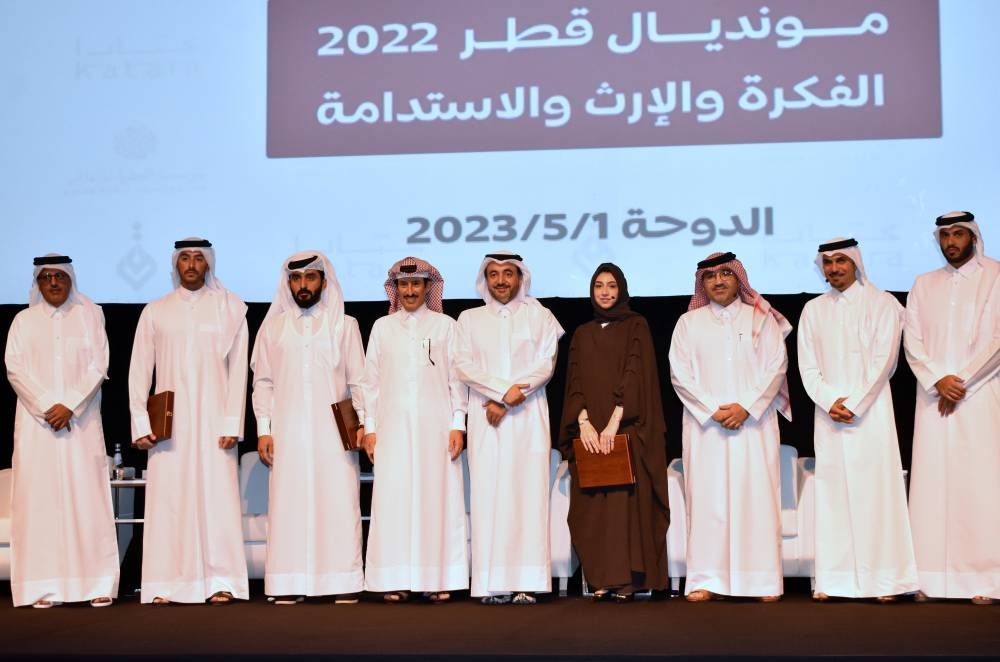
Officials and panellists at the event Monday. PICTURE: Thajudheen
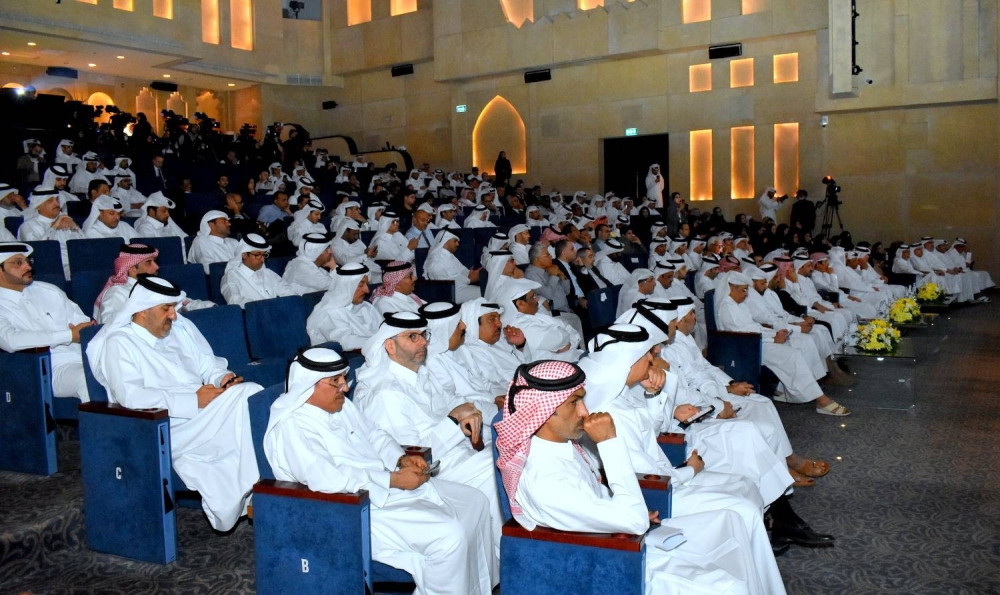
Officials and panellists at the event Monday. PICTURE: Thajudheen
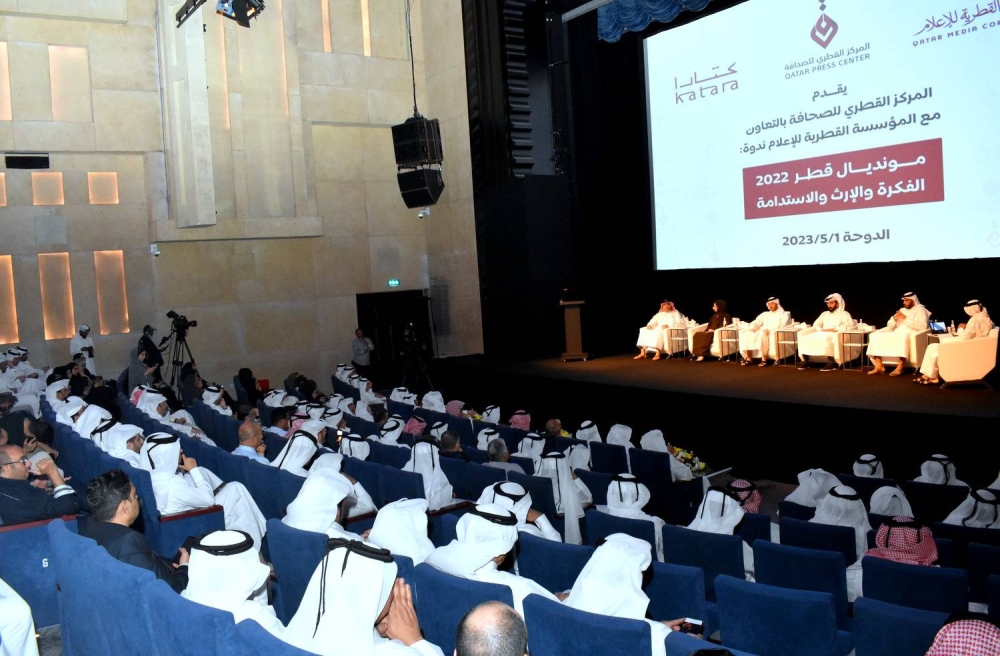
Officials and panellists at the event Monday. PICTURE: Thajudheen
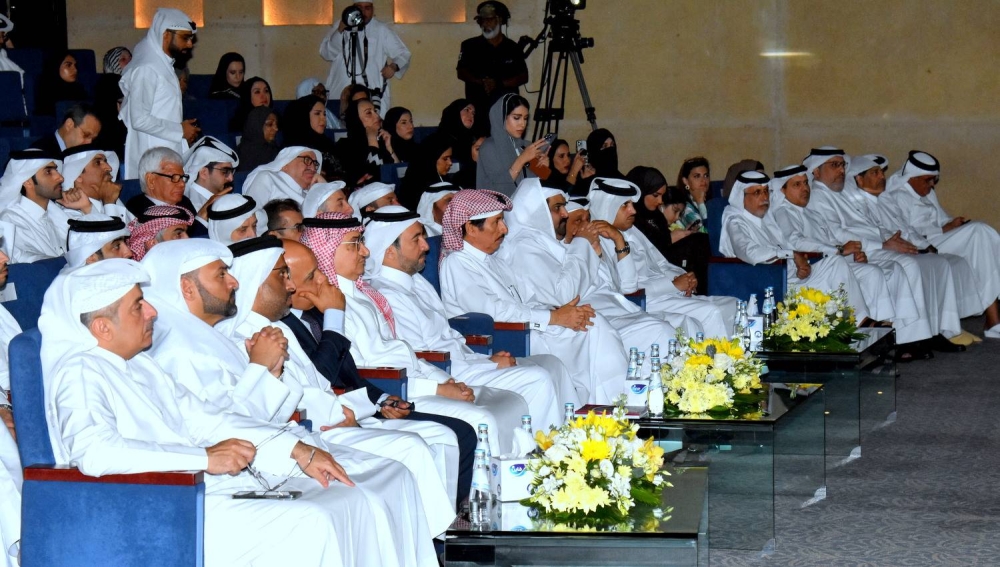
Officials and panellists at the event Monday. PICTURE: Thajudheen
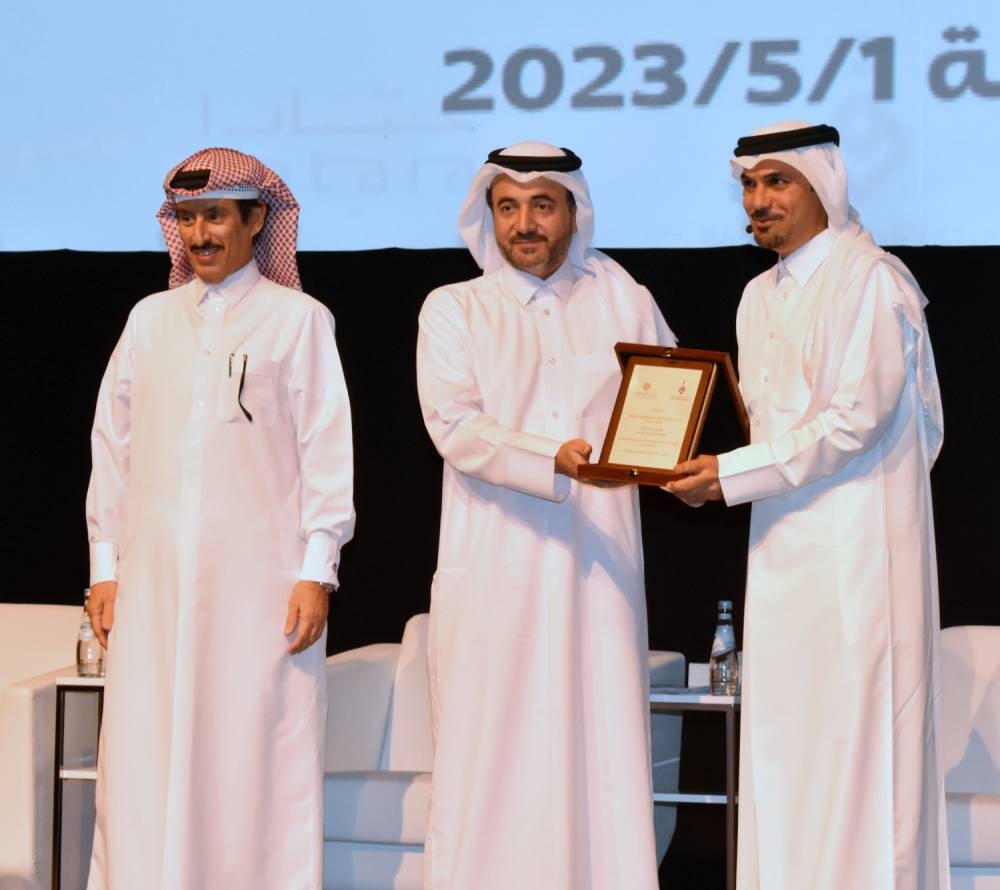
Officials and panellists at the event Monday. PICTURE: Thajudheen

